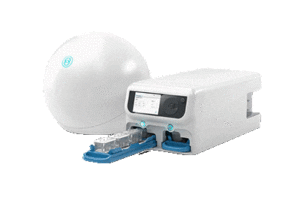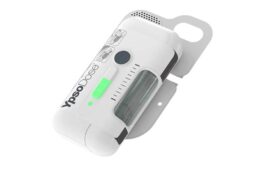 Boston-based Emulate has introduced the Zoë-CM2 culture module, which prolongs the life of cells within the company’s organ chips. The module can automate the conditions for culturing up to 12 chips.
Boston-based Emulate has introduced the Zoë-CM2 culture module, which prolongs the life of cells within the company’s organ chips. The module can automate the conditions for culturing up to 12 chips.
The culture module is a component of Emulate’s Human Emulation System, which integrates instruments, consumables and software.
Emulate, which is a spinoff from the Wyss Institute for Biologically Inspired Engineering at Harvard University, initially intended to create organ chips to accelerate drug development by replacing animal testing. The company’s mission has since expanded.
“We realized that, essentially, organ chips provide a window on molecular-scale activities inside living human cells within a relevant tissue and organ context,” Dr. Don Ingber, chair of Emulate’s scientific advisory board, said in a recent webinar.
Organ chips can yield mechanistic insights for drug discovery in terms of drug action and toxicities. For drug discovery, the technology can assist with everything from “modeling to target validation to drug candidate safety and efficacy evaluation,” Ingber said.
 In a similar vein, the Zoë-CM2 offers expanded functionality over its predecessor. It includes internet connectivity to enable remote operation, support and software updates. Its connectivity allows researchers to remotely plan studies, adjust experimental parameters and access historical data.
In a similar vein, the Zoë-CM2 offers expanded functionality over its predecessor. It includes internet connectivity to enable remote operation, support and software updates. Its connectivity allows researchers to remotely plan studies, adjust experimental parameters and access historical data.
“By combining human-relevant cell sources and Zoë-CM2’s advanced replication of biological microenvironments, Emulate enables researchers to model complex human biology to uncover new discoveries in disease pathology and drug effect,” Emulate VP of Platform Development Chris Hinojosa said in a news release.
Filed Under: Drug Discovery and Development





Tell Us What You Think!
You must be logged in to post a comment.